This article is proposed by Anna Rottenecker, an experienced human rights fundraiser and organisational development expert with 15 years of experience working with fundamental human rights organisations, from grassroots level to international organisations.

When I tell my fundraising peers that I am specialised in the human rights field, the usual answer is something like: “oh, this is a very particular field of fundraising, I would not know how to do that”. It was therefore a great pleasure for me to accept Emilie’s invitation to write a short article on this very topic, as I fundamentally disagree. In its very essence, fundraising for human rights does not differ much from any other fundraising endeavours. It follows the usual fundraising cycle of identification (who is the potential donor), qualification (how likely is he/she/the institution to give), cultivation (building a genuine relationship), solicitation (the right ask at the right time) and stewardship (gratitude and accountability).
The specificities of human rights work
The difference lies in the specificities of human rights work: we work on systemic change, and systemic change includes more often than not a change of perception by all members of a given society, and the achievement of legislative changes in a given State or even on regional/international level. We work for the benefit of those whose rights are violated, or simply neglected. As such, human rights work does take time, and the pathway to fundamental change is long.
For example, it took Thailand 15 years to adopt the Act on Prevention and Suppression of Torture and Enforced Disappearance following its ratification of the UN Convention Against Torture and Other Cruel, Inhuman or Degrading Treatment or Punishment (UNCAT), after intensive advocacy and training by human rights organisations. And it needed 25 years of advocacy by the Association for the Prevention of Torture (APT) and its allies for the international community to adopt the Optional Protocol for the Prevention of Torture (OPCAT), that complements the UNCAT and proposes specific steps to be taken at the national level to prevent torture and ill-treatment.
Developing the art of convincing donors
In today’s world in which funders would like to see quick results, fundraisers who work on such topics need to develop the art of convincing donors that every small step on the long way to change is as important as the final impact. We need to master our communication skills of putting the organisations’ daily work and annual activity plans in the context of a much wider, and beyond the organisations’ own, strategy.
We have to actively and honestly manage expectations to avoid misunderstandings in our donor relationship. Direct results of human rights work nearly always impacts a variety of stakeholders directly, and only indirectly the final beneficiaries: for example, human rights organisations advocate with the municipal authorities to set up a communal health care centre for persons with mental health challenges and to provide the necessary treatment, instead of providing the medication themselves.
This is why more often than others, as fundraisers, we need to illustrate our work by using specific intervention strategies, such as the Theory of Change, to explain how a given intervention, or set of interventions, are expected to lead to a specific change, drawing on analysis of available evidence. In very particular areas of human rights work, we need to convince the donor that every person deserves to live a life in dignity, regardless of a person’s actions or background.
And depending on the cultural background we fundraise in, we need to package our work into safer words: we don’t advocate for the rights of disabled people but we help disabled people overcome poverty.
Donor cultivation is key
Given the above, human rights organizations have to invest more time in donor cultivation than others. There is a higher need for regular direct contact and personal meetings. It is through patience and perseverance, paired with a continuous sharing of knowledge on the achievement of small steps, set in context, with the potential donors, that fundraising endeavors for the promotion and protection of fundamental human rights become successful.
To know more about Anna, visit her website.
Do you need expertise and support for your organization? Let’s talk about it!
To keep up to date with the latest articles, follow me on LinkedIn and subscribe to the newsletter.
Copyright © 2024 E | C Consulting – All Rights Reserved – To use this content, please ask for permission in advance and cite the source if agreed.
